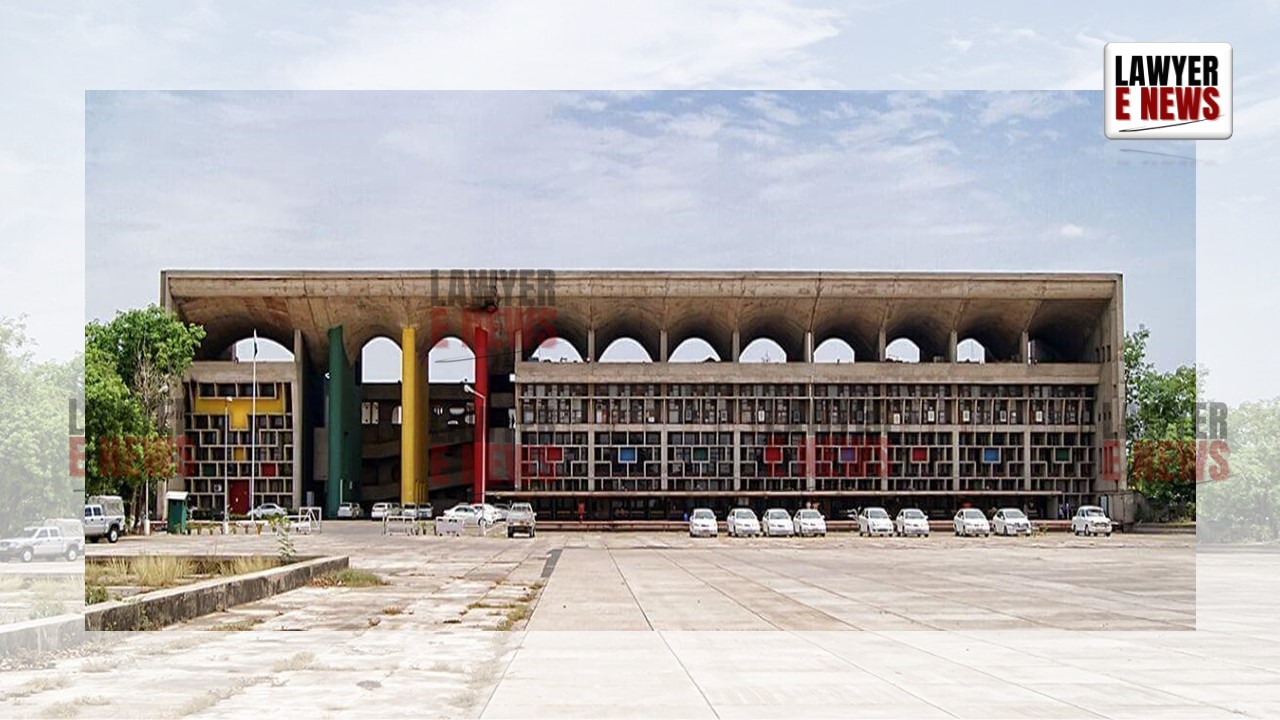-
by Admin
15 February 2026 5:01 PM



In a judgment Punjab & Haryana High Court dismissed a regular second appeal challenging the dismissal of their suit for permanent injunction by the Trial and First Appellate Courts. Justice Alka Sarin upheld the concurrent findings, emphasizing that possession is central to a claim for permanent injunction, and the plaintiffs had failed to prove possession or ownership over the disputed property.
The appellants sought a permanent injunction to restrain the respondents from encroaching, constructing, or dispossessing them from a plot of land in Gurgaon, Haryana. They claimed to be legal heirs of a common ancestor, Badlu Ram, and asserted co-ownership and possession of the property based on revenue records and alleged inheritance.
The Trial Court dismissed the suit, finding no evidence of the appellants’ possession or ownership of the property. The First Appellate Court upheld this finding, leading the appellants to approach the High Court.
Justice Alka Sarin reaffirmed the principle that in suits for permanent injunction, possession—not ownership—is the decisive factor. The Court noted:
"It is trite that in a suit for permanent injunction, only possession was to be seen."
Both lower courts found that the appellants failed to prove possession of the suit property. The following facts were significant:
Constructed Property: The land was not vacant but had a boundary wall, gate, and construction, where the defendants ran a ration depot and parked vehicles.
No Evidence of Possession: The appellants provided no proof of possession over the property, despite claiming it was inherited from their ancestor.
Ownership Records in Dispute: The revenue record (jamabandi of 1945-46) showed ownership in the name of one Manohar, son of Chiranji Lal, contradicting the appellants’ claim of inheritance from Badlu Ram.
The Court rejected the appellants’ argument that possession follows ownership in cases of vacant land, holding that the property was demonstrably under the control of the respondents.
The High Court emphasized the importance of concurrent findings of fact by the Trial and First Appellate Courts.
It stated: "Both the Courts concurrently found that the plaintiff-appellants had failed to produce any evidence to prove possession or ownership over the disputed land. This Court cannot interfere with well-reasoned findings supported by evidence."
The Court reiterated that second appeals under Section 100 of the Code of Civil Procedure, 1908, can only be entertained when a substantial question of law arises. In this case, no such question was found.
The appellants argued that vacant land’s possession is presumed to lie with the owner. However, the Court clarified that this presumption is not absolute and can be rebutted by evidence of actual possession by another party.
It observed: "The argument that possession would go with ownership for vacant land deserves to be rejected in view of the concurrent findings of the Courts that there was construction on the suit property."
The Court highlighted that in property disputes involving constructed land, concrete evidence of possession is necessary, and mere ownership claims are insufficient.
The High Court dismissed the appeal, holding that the appellants failed to establish possession or ownership of the property. It stated:
"No question of law, much less any substantial question of law, arises in the present case. The appeal being devoid of any merit is accordingly dismissed."
This judgment reinforces several key principles in property disputes:
Possession as the Basis for Injunction: In suits for permanent injunction, proving possession is paramount, even if ownership is claimed.
Concurrent Findings of Fact: Courts are reluctant to interfere with factual findings by lower courts unless there is a substantial question of law.
Presumption of Possession with Ownership: This presumption does not apply where there is contradictory evidence showing possession by another party.
The case serves as a reminder that plaintiffs in property disputes must present robust evidence of possession, especially when seeking injunctive relief.
Date of Decision: December 9, 2024
